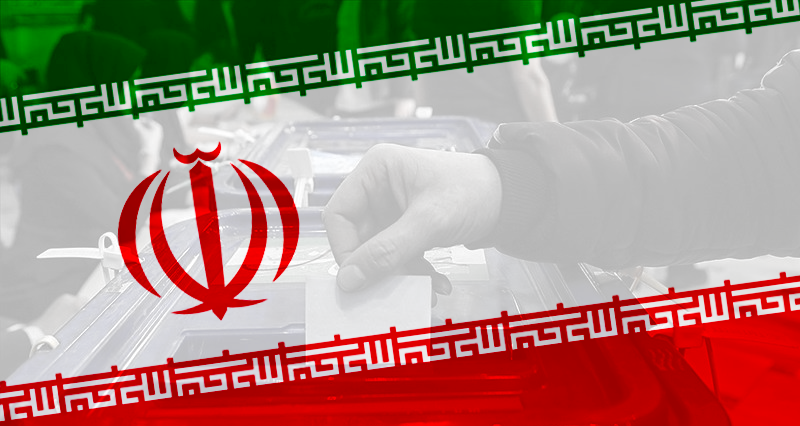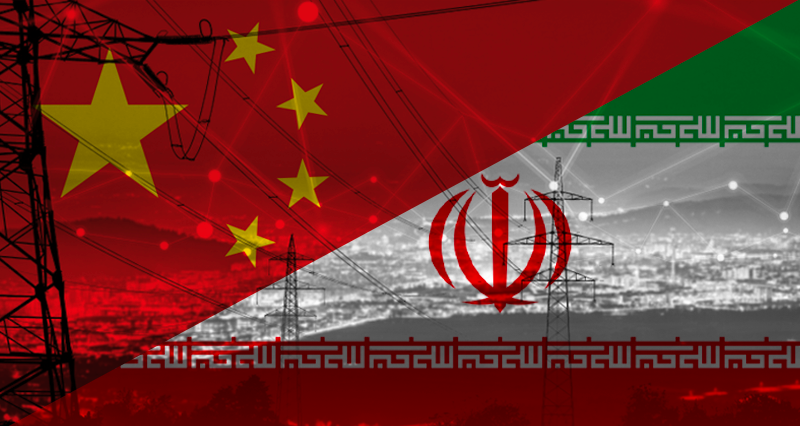As was expected during the last days of Iran’s presidential campaign, Seyed Ebrahim Raisi was elected as the eighth president of Islamic Republic of Iran. With more than half of the votes in the 13th presidential election of Iran, he achieved the presidency already in the first round. However, now the question arises: How will Raisi attract the public opinion toward himself as a savior and what kind of problems will he face in domestic and foreign policy?
Emphasis on justice
Raisi has served in the Iranian judiciary at various levels for the past forty years, during which time he has been able to perform reasonably well. So far, not even his opponents have filed any case of financial or administrative corruption against him. His family members have, unlike a significant portion of his reformist rivals, all studied, worked and lived inside the country, and no corruption cases have been filed against any of them.
His honesty, along with his determination, which have been evident in the last two years of his occupation as the head of the judiciary, all indicate his readiness to create a large wave of administrative and financial reforms in the country’s bureaucratic system. In response to his critics, who claimed that the fight against corruption in the judiciary was easier than the government, he stressed that the main share of systematic corruption in the country is due to gaps and lack of proper functioning in the government. Hence, he decided to close the loopholes in the executive branch.
Along with struggling against the corruption that has become an epidemic in executive institutions, Raisi has focused on “justice”, which has been largely neglected in reformist administrations. It is likely that he resumes the large-scale housing projects for young couples and the homeless, which were slowed down during the Rouhani presidency due to the liberal policies of the Ministry of Housing, as well as, reforms in the health care system, the insurance system, pensions, and granting loans to newly married couples. Due to the emphasis on justice, he is also likely to pay more attention to peripheral areas such as undeveloped borderlands, the villages and especially cities of low income. Raisi repeatedly announced in his campaign that he would do his best to make social justice a foundation of the 1979 revolution.
The challenges
The major problem in the Raisi administration is the debris left by the Rouhani government. Rouhani has created the most indebted government in the last 40 years. He will hand over the crisis-stricken treasury to Raisi, with having increased the debts of the crisis by 33 times. At the same time, the value of the national currency has reached the lowest level in contemporary history and significant inflation is putting heavy pressure on people. In this situation, more than half of the country’s population is below the poverty line.
Raisi will take over such an economy from Rouhani, and more importantly, he will inherit the lack of public trust in the government. Many people believe that the Rouhani administration has robbed their funds to cover its budget deficit by fluctuating in the country’s stock market, and they consider the government to be the most dangerous thief of their capital. This shows the fragile state of the trust in the relationship between the people and the government. Raisi’s toughest mission in the next four years will be to rebuild that sense of trust.
Should one fear Raisi?
The Reformist Front, who were among the most radical groups in reducing civil liberties in Iran in the 1980s and 1990s, are now the most critical of Raisi, as well as they are preachers of freedom in the country. They did their best to campaign against Raisi emphasizing the situation of civil liberties under a conservative president. However, a look on Raisi’s activities as the head of Iran’s judiciary in the last two years shows that these allegations are not true.
Raisi was the head of the country’s judiciary for two years. However, the judiciary could restrict the country’s civil liberties and implement the strictures that the reformists claim. But as he mentioned repeatedly in his presidential campaign, he has never shut down any media, never opened a case against any critique and did not implement any filtering on the internet during his term. Obviously, such a person will not take any tougher measures in the presidency, when his actions are under stronger observation and prone to heaver criticism.
According to such characteristics, many analysts and columnists believe that he has more chances to create a national consensus in domestic politics. Many well-known reformist journalists met Raisi before his victory and stated their willingness to cooperate with his government in the years to come. It seems that the hard-line reformists are not willing to cooperate with Raisi, but a wide range of moderates will work with him in the domestic area.
The Gordian knot of foreign policy
Undoubtedly, Raisi’s foreign policy will be quite different compared to the failed Westernized policy of Rouhani, but this does not mean that he will choose to turn away from the West. By considering the eight years of Rouhani’s policy, he will try to boost relations first at the regional level and then to the Eastern-Eurasian states to achieve new opportunities for Iran’s diplomatic and economic goals. It should be mentioned that, as he himself has emphasized, his government would also adhere to JCPOA and the efforts made to open up with the West. It is expected that Raisi will use the policy of leveraging boosted relations with the East for reviving more interests by the West.
Raisi’s main advantage is the unity of political power inside the country, which will be accompanied by the Conservative parliament, military forces and the state body, and this will increase the possibility of his political bargaining against the West.
Will Raisi become a hero?
We should remember that a main part of Iran’s challenges, both domestically and externally, are rooted in structural problems. These problems are the lack of surveillance for institutions and legal entities, the impossibility of measuring the performance of institutions, the interference of duties of different political institutions, the slowness of the country’s bureaucracy, the systematic corruption in some institutions, the lack of precise definition of foreign policy priorities, the crisis in the banking system and the performance of Central Bank, the oil dependent economy and etc. Many of the country’s issues root on these problems and changing the President will not fix all of them.
These are all problems that have plagued all presidents for the past 40 years, and each of them has tried to manage the challenges utilizing various methods. In the case that Raisi can take deep steps towards structural reform of the government to cover the gaps by using the political consensus and more importantly, by using the support of the Supreme Leader and the military circles, some part of the structural problems would be solved and the results will reflect on people’s daily life. Then he will become a hero of Iran’s contemporary history. But if, like his predecessors, he moves only in the direction of the daily management of the country’s affairs to cope with small and large internal and externally imposed crises, then he will have to leave the rubble left behind by another president for another 8 years.

















Leave a Reply